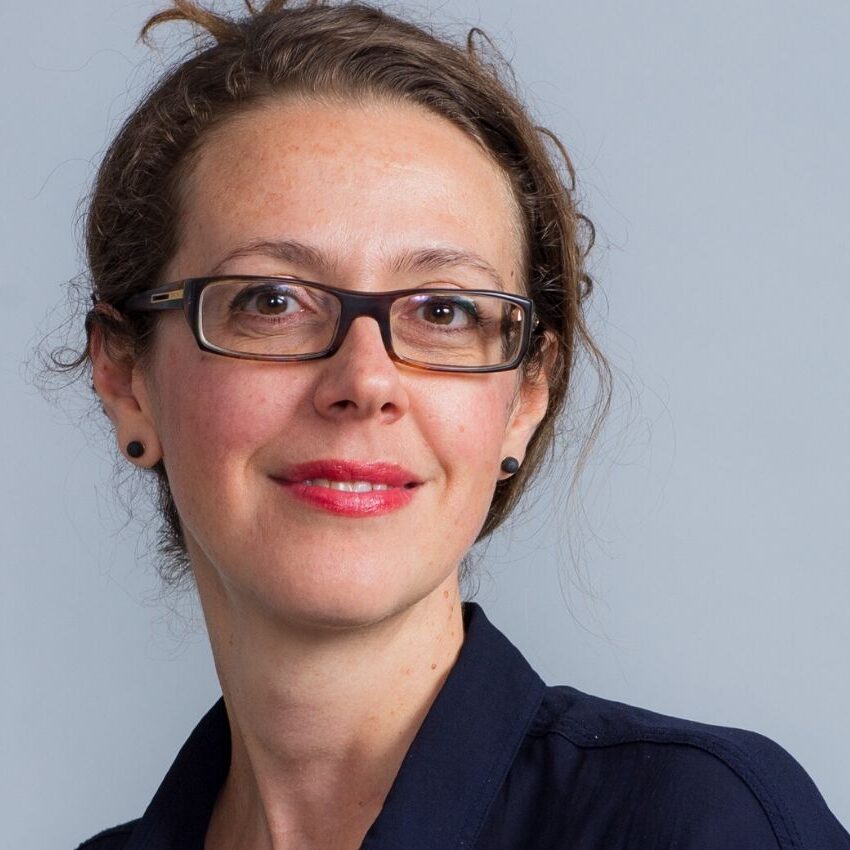Eva…
Q&A: How Monika Jaroszonek is adapting to a new normal.
The CEO and Co-Founder of RATIO.CITY shares her strategy and advice.

Monika has always been fascinated by dynamic cities. She believes that technology can be used to build more liveable cities through increased density, affordable housing, well-designed municipalities, and better access to urban information. After 15 years in the architecture industry, Monika co-founded Ratio.City, a proptech company that helps city builders make data-driven decisions for urban transformation. Since launching in 2018, Ratio.City has become a trusted source of information for some of Canada’s largest real estate developers and Real Estate Investment Trusts (REITs). Monika is frequently asked to speak about the future of city building and the intersection of real estate and technology. She shares how she plans further for her business, what areas are getting the bulk of her attention, and advice for other entrepreneurs.
What area of your business is getting your most energy and focus?
I’m focused on reframing these unusual times to see the unique opportunities. It is of critical importance to not only keep moving our business forward but be able to contribute meaningfully to the greater discussions about how our cities and urban areas can thrive in the coming months and years.
What is the most important problem you are trying to solve?
For my entire career, I have been focused on answering the hard questions about cities: how can we house a growing urban population sustainably with limited resources? How can we build better, more liveable and equitable cities? How can we empower professionals to access critical information more easily in order to allow them to focus on solving complex problems about our built environment?
What has been your most successful solution so far?
Our platform allows professionals in the City Building space to access, visualize and analyze urban data. We take fragmented and siloed information and make it accessible and searchable, and allow anyone doing any kind of business in cities to derive complex, geospatial insights.
How have you been staying connected with your customers and employees?
Like everyone else these days, we are using video conferencing to the extreme. We are in a fairly traditional industry where in-person meetings were the norm and we have been able to develop relationships over time as a result. It is much harder to read a room or react dynamically to an audience via video conferencing so we have to be very conscious to actively listen and give space to others to react. We have a number of weekly team meetings where we can share information and make collective decisions, and I have also started having regular one on one meetings with employees to be able to check in informally.
What financial resources are you tapping into?
In times of uncertainty, we have been looking at the financial implications of the extreme scenarios and modelling them up. Once we have a game plan in place for both the worst case and best case, we can get back to work confident that reality will fall somewhere between the two extremes and we can adjust accordingly as more information becomes available.
“It is of critical importance to not only keep moving our business forward but be able to contribute meaningfully to the greater discussions about how our cities and urban areas can thrive in the coming months and years.”
What has surprised you?
We expanded our team significantly less than a year ago – we have an incredible group of diverse and talented people with a wide range of professional experiences. What has been amazing for me to watch is how they have all contributed towards a very ambitious product launch under remarkably challenging circumstances. Everyone has adjusted to new roles and responsibilities and been remarkably successful at pulling together.
How far ahead are you planning?
I am always looking at next week, next month, 6 months & 12 months out. As a start-up, we always need to manage immediate short term concerns but I want to always be looking to the horizon to make sure we are heading towards our larger vision. I tend to spend most of my time thinking about how to best spend my time to get us into an ideal position half a year from now.
What keeps you positive?
I get energy from talking to customers, listening to their daily challenges, and seeing their initial reactions when they see how our platform can help them. I have also really enjoyed the creative aspect of designing a business around a complex problem.
What message do you want to share with entrepreneurs right now?
Entrepreneurship has been incredibly challenging and also personally satisfying. My advice is to make sure you have a strong personal and professional support system.
TORONTO,…
Twenty-One Remarkable Women Entrepreneurs Named 2024 RBC Canadian Women Entrepreneur Awards Finalists
By…
Sponsorship, Strategy, and Success: How this Scotiabank Executive Champions Career Advancement Through Advocacy
By…
Courage, Culture, and Change: How This Scotiabank Executive Advocates for Indigenous Empowerment
By…
From Breaking Barriers to Building Boards: How This Entrepreneur is Elevating Women in Leadership
By…

